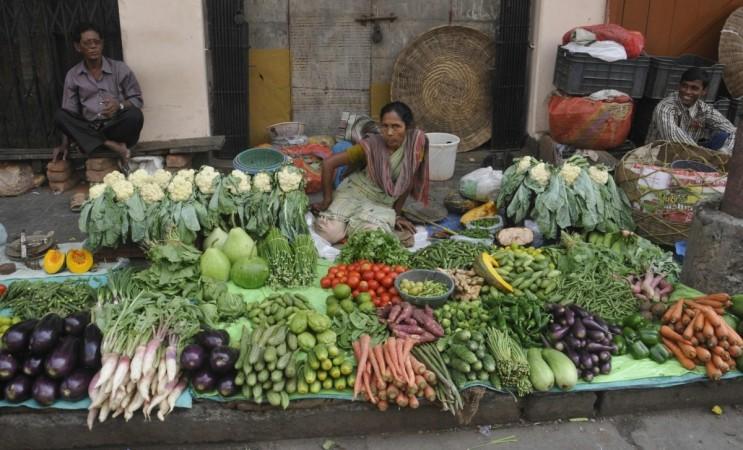Lower food prices eased India's July retail inflation on a sequential basis. Data furnished by the National Statistical Office (NSO) showed that the Consumer Price Index (CPI) slipped to 5.59 per cent last month from 6.26 per cent in June.

Region wise, the CPI Urban was at 5.82 per cent last month from 6.37 per cent in June, and the CPI Rural at 5.49 per cent in June from 6.16 per cent in June.
As per the NSO data, the Consumer Food Price Index fell to 3.96 per cent last month from 5.15 per cent in June. The CFPI readings measure the changes in retail prices of food products.
The macro-economic data assumes significance as it brings retail inflation mark in the range of the Reserve Bank of India's set target of 2-6 per cent for CPI inflation. The declining retail inflation rate reduces the chance of the RBI to further loosen up the monetary policy.
"Sharp fall in food inflation to 3.96 per cent in July 2021 led the headline retail inflation to cool off to three months low of 5.59 per cent in July 2021," India Ratings and Research's Principal Economist, Sunil Kumar Sinha, said.
"Though sharp vegetables deflation was mainly responsible for sharp decline in food inflation, a strong base effect both at food as well as headline inflation was also on play in July 2021. However, headline inflation in July 2021 is still closer to the upper band of the RBI's targeted inflation rate of 6 per cent and is higher than the targeted 4 per cent consecutively for 22 months."
According to Sinha, fuel and light inflation remined in double digits for third consecutive month. Even transport and communications showed double digit inflation. "Going forward, base effect will have favourable impact on headline inflation at least till October or November 2021."
Petrol prices
"However, inflation trajectory will also depend on government's taxation policy on petro product, which is playing a major role in pushing fuel and light inflation directly (first round) and transport and communication inflation through higher freight cost indirectly (second round impact)."
ICRA Chief Economist Aditi Nayar said: "The July 2021 CPI inflation of 5.6 per cent has receded below the MPC's upper 6 per cent threshold, and also printed below expectations, which will help in quelling anxiety about the immediacy with which rates need to be hiked."
"Nevertheless, with inflation expected to remain sticky in the 5-6 per cent range over the next three quarters, it is increasingly difficult to characterise the pressures as purely transitory in nature. A small disruption could push inflation back above the 6 per cent threshold, which implies that some uneasiness will continue about how soon the MPC may embark on policy normalisation."

















